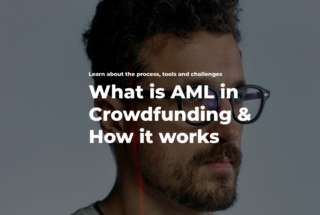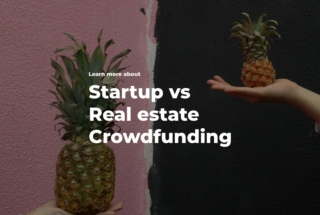Banks and Crowdfunding: How Does It Work?
A bank consists of several divisions including investment banking and commercial banking. The difference between the two divisions is the key to understanding how and where banks and crowdfunding can work together.
Investopedia draws a very clear line between commercial banks and investment banks. A commercial bank has always been focused on the retail customers and small businesses offering the following products and services:
- Deposits
- Loans and mortgages
- Credit cards and bank accounts
- Multi-currency wallet management
- Insurance, retirement and education accounts, etc.
A commercial bank always acts in the best interests of retail consumers offering stability, security, predictable future, and protection. Well, it does so because a commercial bank is obliged by law to provide the best customer service and protect its retail clients. Also, being heavily regulated, commercial banks are FDIC or FSCS insured. FDIC and FSCS are governmental organisations which offer a set compensation in case of the bank’s failure to repay its customers.
Now, an investment bank is different. It provides a different spectrum of services to high-net-worth individuals and corporate clients. The services include:
- Underwriting debt and equity securities, i.e., raising capital
- Conducting M&A transactions
- Resolving conflicts of interest
- Company reorganisation, etc.
The regulatory framework of the investment banks is also different. By default, an investment bank is a risky division which has more flexibility and control over the investor’s funds. Some degree of risk is always allowed and even encouraged in potentially lucrative deals.
What you will learn in this post:
Why does the difference between investment banking and commercial banking matter for crowdfunding?
Different financial intelligence levels, amounts of money, interests and behaviour of the clients is the determining factor for launching a particular solution.
For example, commercial bank clients take various loans and may get into debt. There are P2P lending platforms that offer loans to pay off debt. This is something that consumers use to increase their credit score and solve current financial troubles.
Should a bank launch its own P2P lending platform, how would that work? There is an obvious conflict of interests.
Now, what if there is a business that’s looking for capital. There is an idea, vision, mission, business plan and everything. But no revenue. Would a bank provide a loan or invest in equity?
Very unlikely. So, the client is lost.
Obviously, banks want to expand on their clientele and provide services to as many “verified and trusted” consumers as possible. So, how does banking and crowdfunding work?
BNP Paribas and crowdfunding
BNP Paribas is among the first banks that claimed potential crowdfunding partnership.
“We believe in the power of smart complementary action between bank funding and crowdfunding”
said Marie-Claire Capobianco, Head of French Retail Banking and Executive Committee Member at BNP Paribas
BNP Paribas partners with UIule and SmartAngles, crowdfunding platforms which come from different domains. Ulule is a donation-based crowdfunding platform while SmartAngles is a blockchain-powered P2P lending platform for SMEs.
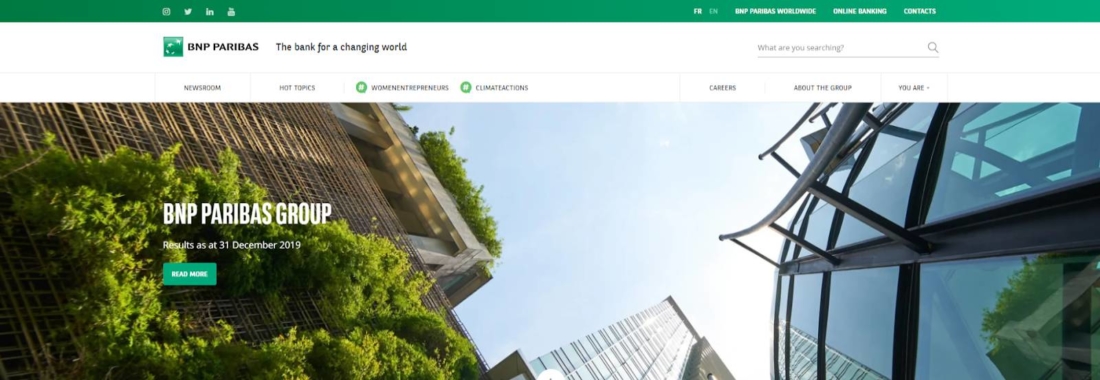
Supposedly, the Ulule is integrated within the commercial banking division while SmartAngles found its place in the investment banking division. But this is just an assumption of how it may work.
Why BNP Paribas partnered with Ulule
In their article at BNP Paribas website, they mentioned one distinctive “selling point” of their partnership.
It’s clear that SMEs don’t always qualify for a loan without a proven revenue stream, monetisation strategy, funds or collateral. So, by partnering with Ulule, BNP Paribas offers SMEs a way to fundraise through the platform and then obtain a bank loan to develop their business further.
In this case, a funding campaign works as a Proof of Concept for the SME before they are eligible to get a loan at BNP Paribas.
Also, BNP Paribas acts as an active backer of the projects on the platform. And, when the project is funded successfully, BNP Paribas offers businesses a year of free banking services and a loan equal to or greater than the amount raised.
J.P. Morgan Chase and crowdfunding
J.P. Morgan Chase is one of the largest investment banking firms in the US. Making its move to the crowdfunding field, the company acquired WePay in 2017. The deal was valued at $400M, according to TechCrunch.
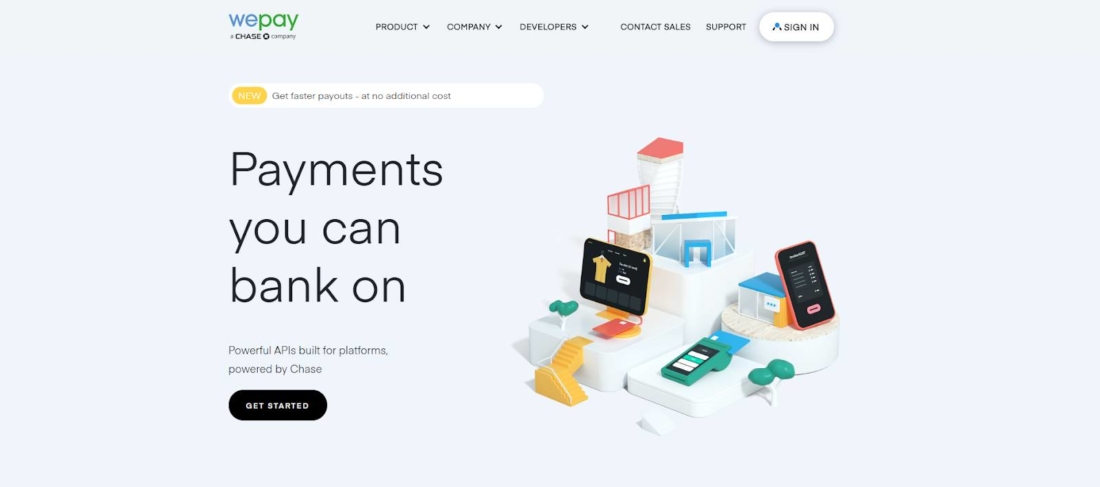
WePay is a payment processing provider with a focus on crowdfunding as one of its core competences. It’s known for being a payment gateway on one of the biggest crowdfunding platforms such as GoFundMe.
Apart from WePay, J.P. Morgan Chase had also taken an investor part in Bill.com and a Fintech incubator. The following investment and acquisition activities show Chase’s interest in satisfying a particular segment of SMEs.
Why J.P. Morgan Chase acquired WePay
J.P. Morgan wants to grow its existing customer base of 4 million small and medium businesses more directly, but to do so on a mass-oriented basis, it required a proven crowdfunding payment gateway.
In 2019, they’ve launched a new product line of 3 items to enlarge WePay services. Link, Clear, and Core became the integral solutions of WePay which focus on different customer segments and satisfy particular needs.
HSBC Bank and Fintech [Not Crowdfunding]
HSBC partnered with Amount, an online banking solution powered by Avant, to provide online lending services. HSBC will leverage the existing customer base of over Avant 800,000 consumers to provide loans.
The current focus on the Amount application is being a mobile lending app which can fit in the digital world of today’s consumers. The platform was customised for HSBC needs to ensure more safety and security.
Why HSBC Bank partnered with Avant
As previously stated at CrowdfundInsider:
“We listened to our customers and understand the market intimately. With the launch of this product we’re addressing a significant customer need and tapping into a rapidly growing segment of the consumer lending marketplace.”
said Marcos Meneguzzi, Head of Cards and Unsecured Lending, Retail Banking and Wealth Management at HSBC USA.
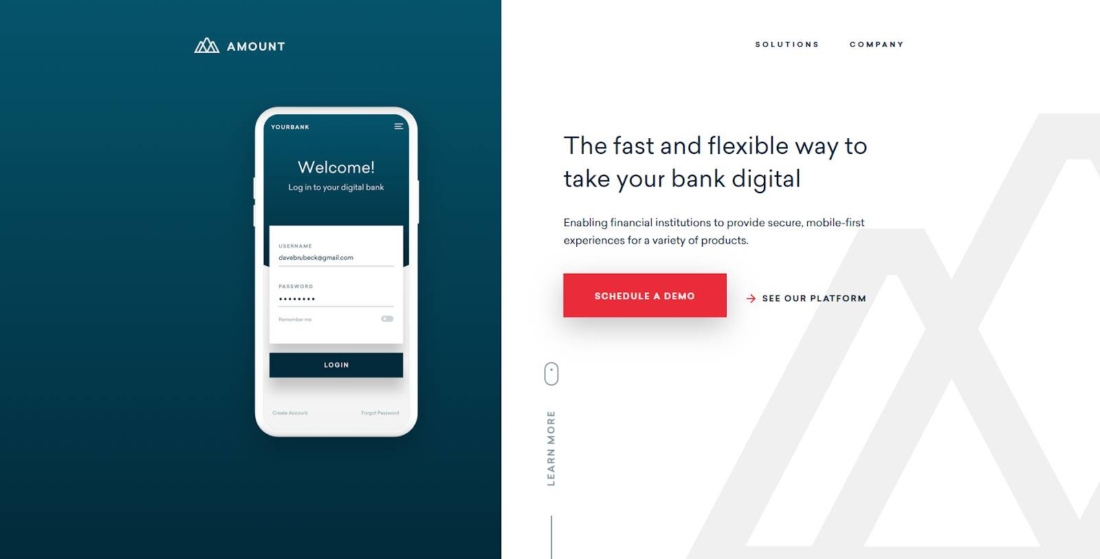
HSBC will provide personal loans up to $30K with 2 to 5 years payback terms through the online platform. However, it’s not about crowdfunding, and it’s unclear whether it can be related to debt crowdfunding and investing in any way further down the road since Amount is an online lending platform.
What does Barclays think about crowdfunding and banking?
Barclays is a multinational investment bank located and headquartered in London, UK. Being among the banking industry leaders and taking an active part in wealth management and investment banking, it’s interesting to see what they have to say about the effect of crowdfunding on the banking sector.
“Ultimately, we want to get repaid, so we need to know how the business would pay us back if growth slows down. We look for commercially sustainable business models, but we’ll lend to loss-making businesses if they have a compelling business model and can demonstrate how they’ll repay us.”
said Juliet Rogan, Head of High Growth & Entrepreneurs at Barclays.
Understanding how businesses will pay back makes total financial sense. In the article at Barclays, Juliet is talking about “venture debt” which refers to debt crowdfunding or P2P lending as we know it. She says that it works best for those who have the business fundamentals set up including a predictable revenue and business scalability strategy.
Who could argue with that?
Crowdfunding effect on banks in a nutshell or how banks see crowdfunding
It’s unethical to merge commercial banking and investment banking as these are different markets with different financial intelligence levels. Moreover, there is a possibility of arising conflict of interest depending on the mix of crowdfunding solutions as discussed previously.
A bank would never launch its own lending or equity investing platform on behalf of the retail banking division because it would go against all banking principles and policies. In other words, debt and equity crowdfunding is as risky as any investment business, so a bank would not be interested to present it to less investment-savvy consumers.
Also read: “The Risks of Managing a Crowdfunding Platform”
However, a potential bank could launch or partner with a donation-based crowdfunding platform like BNP Paribas did. In this case, a donation-based crowdfunding platform may work as a proof-of-concept tool.
Speaking about the investment banks, it’s clear that their main segment is B2B services. Instead of tapping into the smaller segment themselves, they would rather acquire a crowdfunding platform, payment gateway, or other Fintech software to gain more indirect influence on the market.
This pretty much sums up how banks see crowdfunding. It’s a financial instrument for a particular purpose.
How crowdfunding is challenging the banking sector
It’s not. Crowdfunding is not really challenging the banking sector to an extent it’s been blown up. But, yes, it does acquire and support clients that banks failed to satisfy.
At least, crowdfunding doesn’t appear as challenging to private equity, venture capital, angel investing and overall investment banking sector.
“I don’t remember us considering crowdfunding as an option”
said Tom Cozens, a Sales Director at DynamoSoftware
Neither private equity firms nor investment banking reps really consider crowdfunding as something extremely disruptive. One reason being is that crowdfunding just goes under the radar.
At some point, investment and commercial banks and private equity firms may use crowdfunding as a tool for fundraising or investing.
That’s all to it.
The banks that have taken action towards crowdfunding are doing so very indirectly or purely for promotional purposes. It’s pretty safe to say that 90% of all the global money is kept in banks, and they take an active role as an investor, trader, or fundraiser in local and international markets.
The clients that banks lose are not the majority. Many of them are unqualified and even with the most detailed KYC/AML would be considered a waste of time. However, there are exceptions to the rule for sure. Miracles of overnight success do happen, but it’s not the bank’s number one priority to focus on miracles.
What are the opportunities for Fintech businesses and banks
If you’re building a robust crowdfunding platform, payment gateway, online lending software, private equity platform or other Fintech solution, you may expect to partner with a large bank.
The proven record of previously acquired or partnered with platforms shows a good tendency among banks tapping into various market segments indirectly. At the end of the day, your platform may become an entry-ticket for banks to previously uncovered markets.
Banks are interested in profits, so if your app is growing rapidly and draws interest, then it has a high chance of being acquired or invested in.
Apart from that, you can operate your crowdfunding platform as an alternative financing service company and focus on B2C or B2B consumers. As trends currently show, the technology, real estate, and SME sectors are among the top popular crowdfunding industries.
Final thoughts
Crowdfunding platforms can expect lucrative partnership with banks as a part of the fundraising/investing toolkit. On the other hand, banks may look into crowdfunding as something to consider when marketing particular services to particular market segments.
By incorporating crowdfunding, banks may gain competitive advantage and win a few customers here and there. Until then, it’s all about calculating the risk-reward ratio and understanding where one wants to take it.
If you’re looking to expand your banking services and tap into new markets with your own crowdfunding platform or build a crowdfunding business from scratch, you can contact us at lenderkit@justcoded.com for further collaboration.

